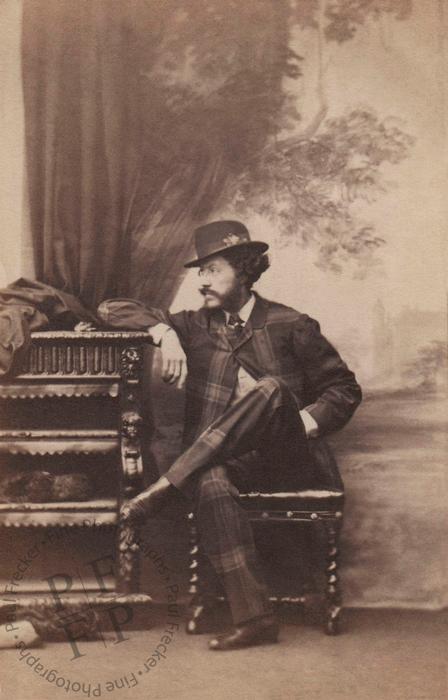Lord Henry Lennox
(1821-1886)
17 October 1860
Volume 2, page 43, sitting number 1470.
Born on 2 November 1821, Lord Henry George Charles Gordon-Lennox, known as Lord Henry Lennox, was the third son of Charles Gordon-Lennox, the 5th Duke of Richmond, and his wife Lady Caroline née Paget, daughter of Henry Paget, 1st Marquess of Anglesey.
He entered the House of Commons in 1846 as the Member of Parliament for Chichester, a constituency he represented until 1885, when he unsuccessfully stood for Partick in Lanarkshire.
He held office in every Conservative government between 1852 and 1875, including Junior Lord of Treasury in the Earl of Derby’s first administration and First Lord of the Admiralty in his last. He served again under Disraeli as First Commissioner of Works from 1874 to 1876 and was admitted to the Privy Council in 1874. He was forced to resign as First Commissioner of the Works after revelations in the case of Twycross v. Grant regarding the Lisbon Tramway swindle, a company of which he was a director.
In 1883 he married, somewhat late in life, Amelia Susannah (née Smith, formerly Brooman), widow of John White. His bride had passed her childbearing years so the union produced no issue.
Lord Henry Lennox died, aged 64, at Eastbourne on 29 August 1886. His remains were interred in the family vault in Chichester Cathedral.
‘The death of Lord Henry Lennox is announced. He was the Duke of Richmond’s brother. He began public life more than forty years ago as précis writer for Lord Aberdeen at the Foreign Office. He entered the House of Commons for the family burgh of Chichester, and sat for it for close upon forty years. He frequently got some small places from Tory governments. He was a Lord of the Treasury in the first and second Derby administrations. Later he became Secretary of the Admiralty for a short time, contracting then a belief which clung to him inveterately, that our Navy has gone to the dogs, and is really a sham. His last office was Chief Commissioner of Public Works. In his later years he fell on evil days. His burgh was disenfranchised. He tried for another seat at Partick in ’85 and was beaten. He was harassed by pecuniary difficulties. A few weeks ago he got a discharge from his creditors on payment of a composition by a rich wife, with an extraordinary history, whom he lately married’ (Edinburgh Evening News, 30 August 1886).
According to another obituary, ‘He was a genial, somewhat eccentric nobleman, who was tolerated and even liked for his good nature. He was for ever brooding over the lamentable condition into which the British navy had fallen through the maladministration of successive Governments, for though a Tory Lord Henry was no respecter of Governments where ships of war were concerned. Many a forlorn oration has he delivered in the empty benches in the House of Commons on the decay of British power upon the sea. Looking at the spare, frail figure of the enfeebled veteran as he discoursed, on every suitable opportunity, upon his favourite theme, one wondered where he got all his martial ardour. Often in his later days the task of delivering his carefully prepared address was too much for him, and he would wander from bench to bench with the manuscript in his pocket in the hope of plucking up courage to make a beginning’ (Leeds Mercury, 30 August 1886).

